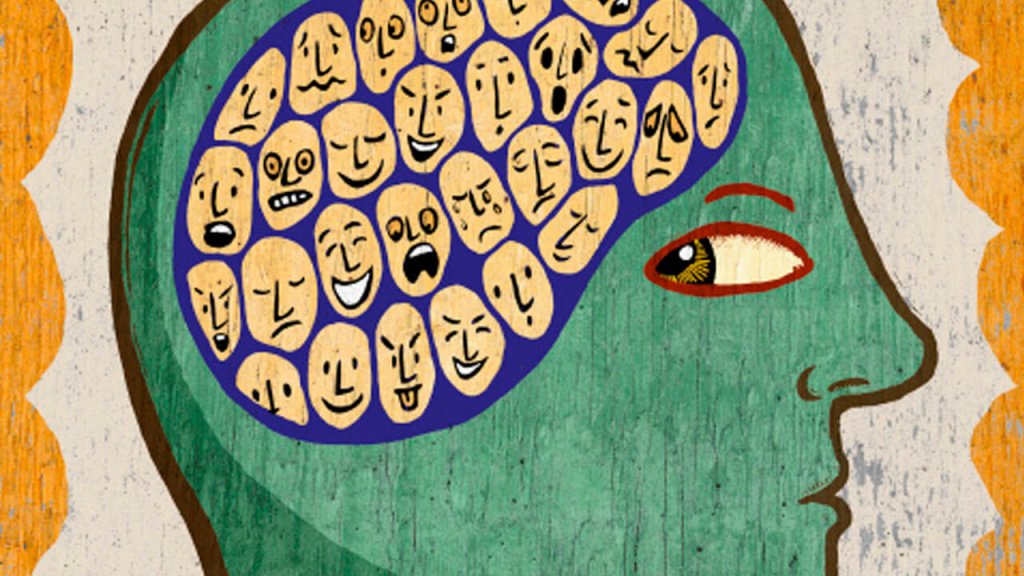Can Emotional Intelligence Improve Your Health?

I know that many articles have been written on the topic of emotional intelligence, but can any of you define it? Or would you be able to talk about how it is beneficial to us? Can emotional intelligence improve your health?
In spite of all the information at our disposal regarding this type of intelligence, it still seems to be unclear to us. Well I’m going to give you answers to these questions, in the most fun way possible and which will hopefully help you in your daily lives.
What is Emotional Intelligence?
Before we start to talk about Emotional Intelligence we need to highlight certain aspects. The first interesting idea I want to introduce you to is that our level of Emotional Intelligence changes throughout our life. So the good news is that you can train and develop it.

On the other hand, the reason we label it as “emotional” is because there are other types of intelligence. This doesn’t mean one is better than the other, but that they complement each other and that you must bear them in mind in order to achieve a successful development.
But, what is Emotional Intelligence? According to Salovey and Mayer (1990) who coined the term, it consists of “the ability to perceive, evaluate and express emotion with accuracy; to use emotions to facilitate thinking; to understand emotion and emotional knowledge; and to manage emotions to generate emotional and intellectual growth”.
What does this mean? Emotional Intelligence is made up of four abilities:
- Accurately perceiving feelings: being able to identify them on people’s faces, in their voice and in other signals that we receive
- Using emotions to make thinking and reasoning easier. This is contrary to the conventional idea that reason and emotion don’t function together. However, in reality, we can improve our reasoning if we are aware of the emotional information present in the process.
- Understanding emotions: knowing what they are called, how to identify them and how tell them apart, as well as understanding how they relate between one another.
- Managing emotion in oneself and others by moderating negative emotions and enhancing pleasant ones, without repressing or exaggerating information they may convey.
As we can see, each ability supports the next one. This means that, in order for us to use our feelings to help us reason, it’s essential that we perceive them accurately. In the same way, before being able to understand them, we first need to know how to apply and identify them correctly. And finally, to successfully regulate them, we must have developed a knowledge of how to understand, perceive and use them.
What are the health benefits of being emotionally intelligent?
According to what we have said, it seems obvious that knowing how to relate to our feelings is very useful. In fact, it has been proven that people with higher emotional intelligence are more successful professionally and academically. Their relationships are also more satisfactory and of better quality.
“People in good moods are better at inductive reasoning and creative problem solving.”

It’s not only advantageous on a professional and social level, but also has a positive impact on our health. Having strong Emotional Intelligence helps prevent different psychological disorders such as depression and anxiety. For example, it has been proven that people who are too wrapped up in their emotions without knowing how to control them have higher levels of negative feelings.
In this sense, being emotionally intelligent will be help protect against psychosomatic disorders. These are illnesses where psychological factors influence the origin and growth of the first physical symptoms. Labial herpes for example, sometimes appears during periods of great stress. However they can also cause heart disease, cancer or diabetes among others.
Having a high level of Emotional Intelligence will help us successfully handle our negative emotions. This will lead to a reduction of the psychological distress initially present and of the oncoming physical problems. This way, we will deal with illness in a more efficient way, using the resources at our disposal, and we have a better understanding of the treatment, even though the effects won’t be immediate.
I know that many articles have been written on the topic of emotional intelligence, but can any of you define it? Or would you be able to talk about how it is beneficial to us? Can emotional intelligence improve your health?
In spite of all the information at our disposal regarding this type of intelligence, it still seems to be unclear to us. Well I’m going to give you answers to these questions, in the most fun way possible and which will hopefully help you in your daily lives.
What is Emotional Intelligence?
Before we start to talk about Emotional Intelligence we need to highlight certain aspects. The first interesting idea I want to introduce you to is that our level of Emotional Intelligence changes throughout our life. So the good news is that you can train and develop it.

On the other hand, the reason we label it as “emotional” is because there are other types of intelligence. This doesn’t mean one is better than the other, but that they complement each other and that you must bear them in mind in order to achieve a successful development.
But, what is Emotional Intelligence? According to Salovey and Mayer (1990) who coined the term, it consists of “the ability to perceive, evaluate and express emotion with accuracy; to use emotions to facilitate thinking; to understand emotion and emotional knowledge; and to manage emotions to generate emotional and intellectual growth”.
What does this mean? Emotional Intelligence is made up of four abilities:
- Accurately perceiving feelings: being able to identify them on people’s faces, in their voice and in other signals that we receive
- Using emotions to make thinking and reasoning easier. This is contrary to the conventional idea that reason and emotion don’t function together. However, in reality, we can improve our reasoning if we are aware of the emotional information present in the process.
- Understanding emotions: knowing what they are called, how to identify them and how tell them apart, as well as understanding how they relate between one another.
- Managing emotion in oneself and others by moderating negative emotions and enhancing pleasant ones, without repressing or exaggerating information they may convey.
As we can see, each ability supports the next one. This means that, in order for us to use our feelings to help us reason, it’s essential that we perceive them accurately. In the same way, before being able to understand them, we first need to know how to apply and identify them correctly. And finally, to successfully regulate them, we must have developed a knowledge of how to understand, perceive and use them.
What are the health benefits of being emotionally intelligent?
According to what we have said, it seems obvious that knowing how to relate to our feelings is very useful. In fact, it has been proven that people with higher emotional intelligence are more successful professionally and academically. Their relationships are also more satisfactory and of better quality.
“People in good moods are better at inductive reasoning and creative problem solving.”

It’s not only advantageous on a professional and social level, but also has a positive impact on our health. Having strong Emotional Intelligence helps prevent different psychological disorders such as depression and anxiety. For example, it has been proven that people who are too wrapped up in their emotions without knowing how to control them have higher levels of negative feelings.
In this sense, being emotionally intelligent will be help protect against psychosomatic disorders. These are illnesses where psychological factors influence the origin and growth of the first physical symptoms. Labial herpes for example, sometimes appears during periods of great stress. However they can also cause heart disease, cancer or diabetes among others.
Having a high level of Emotional Intelligence will help us successfully handle our negative emotions. This will lead to a reduction of the psychological distress initially present and of the oncoming physical problems. This way, we will deal with illness in a more efficient way, using the resources at our disposal, and we have a better understanding of the treatment, even though the effects won’t be immediate.
This text is provided for informational purposes only and does not replace consultation with a professional. If in doubt, consult your specialist.







